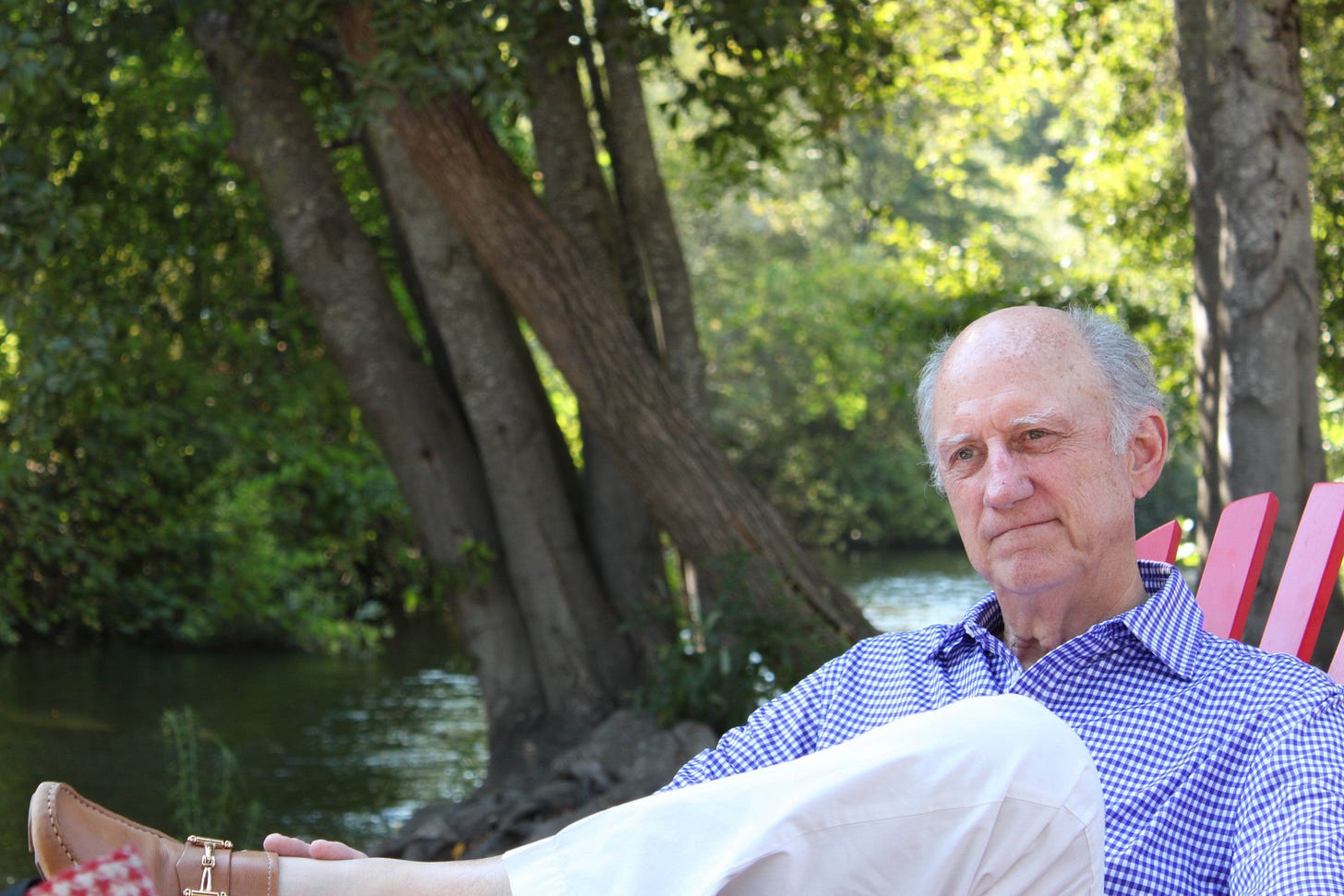Let's Not Talk About It.
But we must.
Death. Scary to most, thought-provoking to me. I credit a new friend, who happens to be a renowned near-death-experience researcher, with turning my fear into curiosity. His writings, specifically this quote, have completely changed my death view:
“I remember one woman who said that in order to grasp the feeling of peace that comes with death you would have to take the thousand best things that ever happened to you, multiply them by a million and maybe, she said (I remember her emphasis on the word, “maybe”), you could come close to that feeling.”
-Kenneth Ring, psychologist and author
I’m far from ready but it sounds pretty great, right? So when I ambled by the poster for a panel called “What is a Good Death?” at the library, my curiosity led me to register.
The moderator greeted us with a joke, trying to add levity to what some may call a heavy subject. My ears perked up when author Katy Butler opened with “My dad had a terrible prolonged death because he had a pacemaker.”
I feel the same way about my dad. While his care is top notch and my mom’s love for him a level of its own, I feel like his once life saving device has lost its way.
Twelve years ago, my dad’s pacemaker saved his life. This tiny little box, acting like a backup electrical system for his heart, enabled him to stay active and carry on with meaning and vibrancy. He stayed busy checking all the prevent-memory-loss boxes like attending rotary meetings (community health), playing golf and croquet with my mom (emotional/physical health) and running a business (brain health). Those healthy years gave us irreplaceable vacation, family, and grandpa time, resulting in some of my most favorite photos of him. I was and am so grateful.
However, nine years into his dementia journey, I can say my love for his magic little box has all but disappeared - the tool is helping to prolong a life that I don’t recognize as my dad’s.
Two years ago, during the most emotionally heavy time of moving my parents into separate homes, the pacemaker batteries needed replacing. We had never discussed this situation prior to being under a dead (life?) line. Rushed and uncomfortable, my mom, my sister and I cried through conversations, ultimately, with the decision being made to replace the batteries.
There’s no way to know what would have happened had we chosen not to. Would he have died peacefully in his sleep? I don’t know. Would he have grown weak and fallen, prolonging life in a harder way? I don’t know that either.
What I do know is this. I’m sad I didn’t have honest, detailed conversations about his end of life wishes before we were in that pressure-cooker moment - or really ever at all. I’m sad I hadn’t done my own research or truly thought through the implications of various medical choices. And I’m sad that the medical system seemed more focused on prolonging life than honoring its quality.
With this sadness comes guilt. There is guilt in knowing I don’t visit very often, in thinking he wouldn’t have wanted it this way, and in wondering if there is still something we could do to help him with a “good death.” There is the utmost guilt in admitting I wish we had made a different choice.
Here’s the lesson. We have the opportunity to create our own path in life…and in death. Thankfully, Katy Butler mentioned her letter, “In Case of Dementia: My Wishes,” before we ran out of time at the library. It’s like she knew I needed a guidebook. She leads with:
“If you’re reading this because I can’t make my own medical decisions due to dementia, please understand I don’t wish to prolong my living or dying, even if I seem relatively happy or content.”
-Katy Butler, author
She continues to detail directions about her list of wants like an art room in her care home should it be required and stating her desire for “comfort care only.”
I’ve read and reread this letter ad nauseam wanting so badly for my stomach not to turn as I picture carrying through with many of these wishes for my own person. But having “known” Katy for forty-five minutes, I strongly believe this is truly what she wants. The knowledge gained from this letter would give me the personal power to follow through.
I still have time to write my own letter, to cry through conversations with my mom about her future and to get curious with my husband about his wants. If you’re reading this, evidently you do, too.
Walking the Walk…
In order to feel comfortable sharing this personal piece, I wanted to have a tough conversation with one of my most loyal readers, my mom. Expressing my feelings about my dad’s pacemaker, my guilt and my desire to talk more about her future was not easy. It never is AND feelings conversations are worth it.
My entire goal with sharing any of this is to encourage my family and YOU to have the tough conversations. To gain knowledge so you feel more powerful during the most intense times. I get it. Having a “death wish list” is one very strange way to show someone you love them, but also one very effective one.





Really a stirring piece today. Thank you.
I highly recommend “Being Mortal” by Atal Gawande. I am not a non fiction reader but loved this important book and i think u will zip thru it snd find it helpful as well as enjoyable! Xo ,